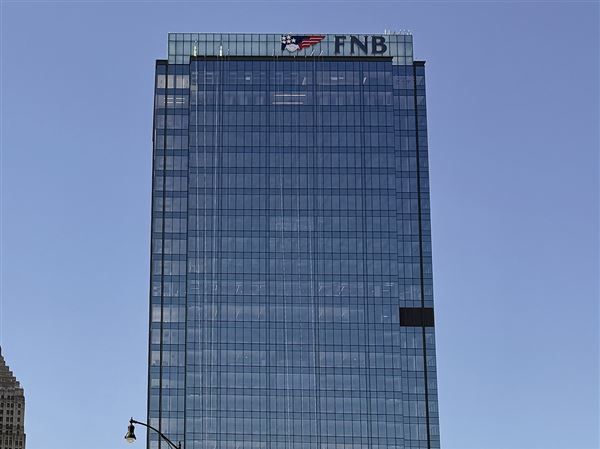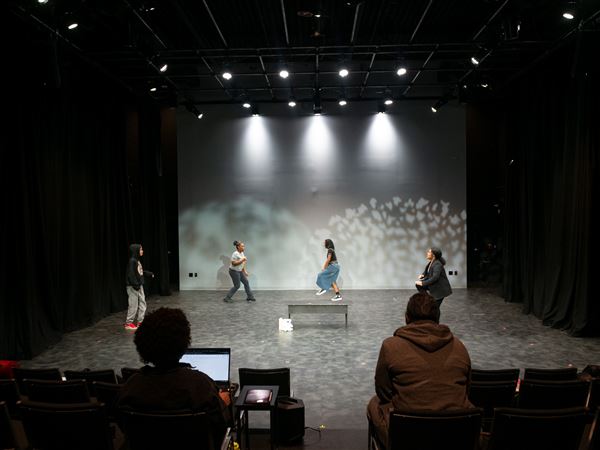After years of juggling clients in her home-based hair salon around a corporate job, in 2012, Tracy Carter was ready to make her part-time gig a full-time venture.
She researched the field, took entrepreneurial classes through Hill District-based community development organization Urban Innovation21, saved $5,000 and increased the number of clients she was seeing regularly to more than 60 a year.
By last year, with her swelling business still being run out of her Verona home, Ms. Carter knew she needed outside capital to expand to a storefront. And when she didn't win the Urban Innovation21 business plan competition's $5,000 prize, the organization steered her toward the Kiva Zip program, which provides eligible entrepreneurs loans of up to $5,000 through donations made via Internet crowdfunding campaigns.
A few months later, Ms. Carter's Shear Delight salon employs one Hill District resident and stands out as another example of the Centre Avenue corridor's revitalization.
While she is still paying back the 95 global lenders who took part in her Kiva Zip campaign, the moral responsibility to pay back her debt has almost outshined the financial responsibility.
"I feel obligated to make sure that payment is made when it's supposed to be," she said. "Ninety-five total strangers lent me the money to get started; to me that speaks volumes. You don't want to let anybody down who believes in you enough to contribute to your funding."
The opportunity for small business owners to turn to a database of Kiva lenders has expanded in Pittsburgh and across the country, thanks to this week's introduction of Kiva City. The initiative from San Francisco-based international aid organization Kiva.org was started in 2011 when the organization adapted its model of providing crowdfunded micro-loans as small as $100 to entrepreneurs in developing nations for the trial Kiva Zip program in seven American cities, including Pittsburgh.
With the introductory Kiva Zip programs linking hundreds of entrepreneurs — including 20 Pittsburgh entrepreneurs — to crowdfunded loans, the program officially launched this week under the Kiva City banner in Detroit; New Orleans; Los Angeles; Little Rock, Ark.; Richmond, Va.; and Washington, D.C.
In Pittsburgh, seven new "trustee" organizations have jumped on board to vouch for entrepreneurs hoping to get in on the action. Entrepreneurs endorsed by trustees can apply for first-time loans up to $5,000. Lenders can put up amounts as small as $25 or can front entire loans on their own. No interest is charged for Kiva loans.
Prior to Thursday's official Pittsburgh launch, Strip District-based Pittsburgh Public Market, Oakland startup accelerator Idea Foundry, Homewood community organization Operation Better Block, community development organization Lawrenceville Corp., Garfield small business organization Christian Evangelistic Economic Development, Lawrenceville co-working organization CatapultPGH, landscaping organization Shadyside Nursery and Urban Innovation21 were all signed on as trustees.
Aspinwall marketing agency Motherhood Inc., East Liberty co-working organization The Beauty Shoppe, social organization Sustainable Connellsville and Lawrenceville homemade card and gift shop Wildcard are all in the process of becoming trustees.
The additional trustees should help Kiva City connect at least 100 Pittsburgh entrepreneurs with loans over the next year, said Kiva.org president Premal Shah — funds he said were desperately needed in a city teeming with potential business owners.
"There is a deep spirit of entrepreneurism in Pittsburgh," he said. "When we talk to folks on the ground, they talk about the energy surrounding entrepreneurs in the city and we know there are neighborhoods that need support. But the thing we're really excited about is finding local leaders who help us find serious entrepreneurs and making sure we can say yes to them when everyone else has said no."
Working off what Mr. Shah called "a circle of trust" that starts with the recommendation of a Kiva trustee, entrepreneurs who pay off loans often become the most reliable references for the next round of businesses seeking to build their companies through Kiva loans. The "trust graph" formed between lenders, borrowers and emerging entrepreneurs referred by trusted borrowers creates a new layer of social capital that goes a long way toward extending new credit.
"I believe character really matters. When people vouch for other people's character, it makes a difference," said Mr. Shah.
"So a small business that receives a loan right now in Pittsburgh might not be able to vouch for someone else in their first year, but imagine five years out after they pay back their loan. They will be able to vouch for another entrepreneur and apply for a second loan if they need to at that time," he said.
Even beyond the Kiva network, consistent payments of the loans could make an impact with traditional lenders, said William Generett, president and CEO of Urban Innovation21.
"I think this is also something that [community development financial institutions] and banks will look at and say they paid back Kiva and will extend credit in a way that wasn't done before," he said.
For Harry Geyer, owner of Homewood bike park The Wheel Mill, Kiva loans came through at a time when he had stretched his lending to the limits with traditional banks and still needed to renovate his retail operations. Thanks to the $5,000 Kiva loan, which came from 64 lenders over the course of a four-day campaign, Mr. Geyer renovated the retail space and hired two employees just in time to coincide with the addition of a new track in the park.
Considering that funds for the $5,000 track came from donors through a separately crowdfunded campaign at Indiegogo.com, Mr. Geyer said support for alternative lending sources is critical to the nation's entrepreneurial efforts.
"There are so many barriers to being able to start a small businesses in terms of access to capital, I feel nonconventional funding helps a lot of people out," he said. "I hope Kiva's program is able to help more people have access to small business funds, because it's rough."
Deborah M. Todd: dtodd@post-gazette.com or 412-263-1652. Twitter: @Deborahtodd.
First Published: March 27, 2014, 2:01 a.m.














